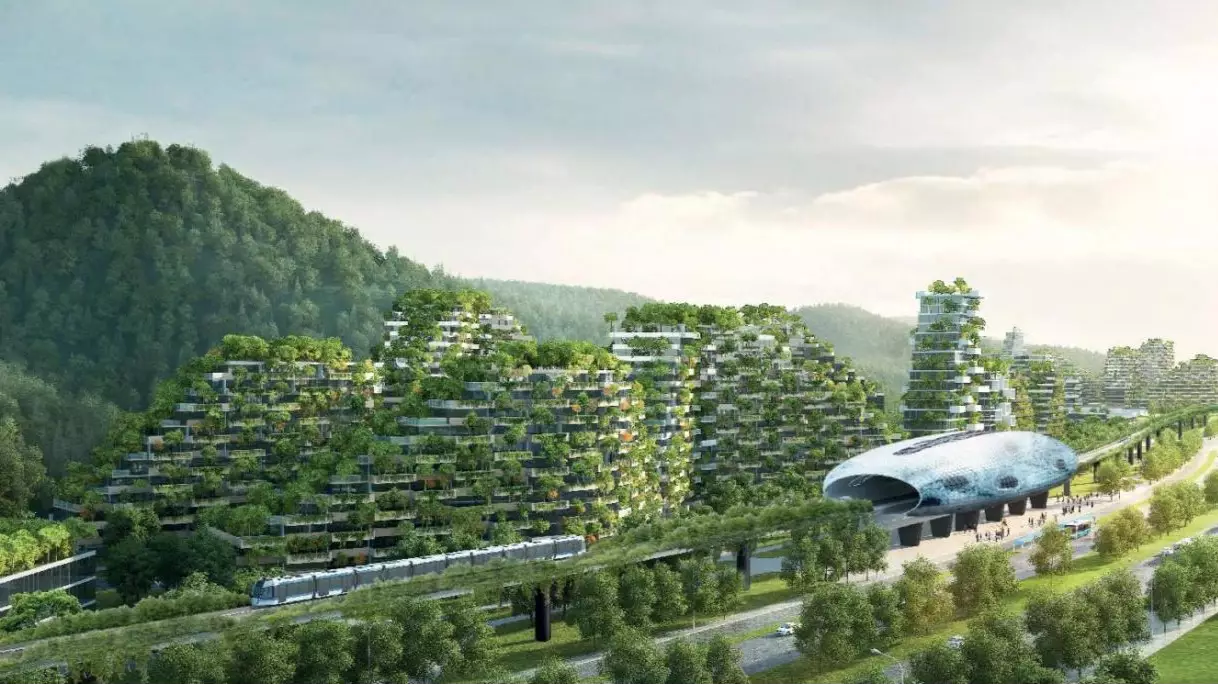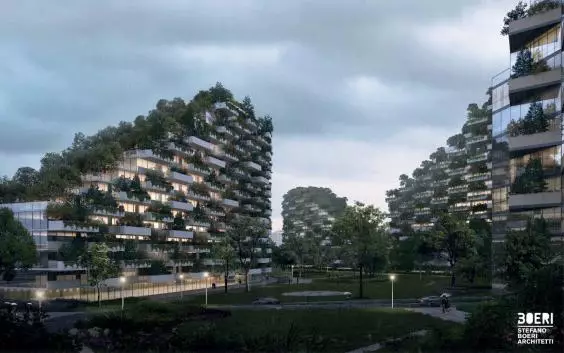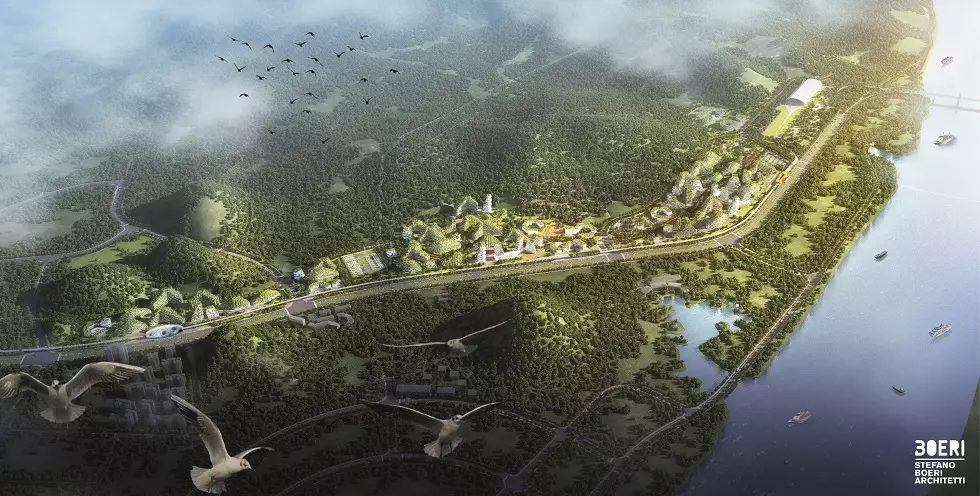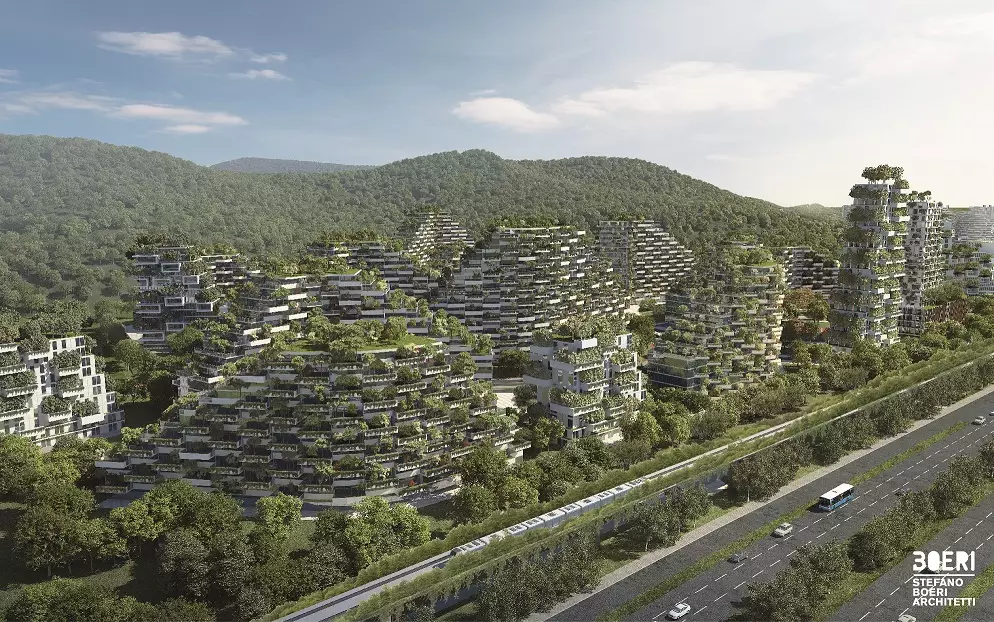
An Italian architect in China has developed a novel idea for dealing with the country's pollution and smog problems with plans to build the first 'forest city' made up of 40,000 trees.
The new Liuzhou Forest City will reportedly host 30,000 people and will absorb almost 10,000 tonnes of CO2 and produce approximately 900 tonnes of oxygen annually.
The city is currently under construction in Liuzhou, Guangxi Province, having been designed by Stefano Boeri, and is expected to be completed by 2020.

The Italian architect's website reads: "The diffusion of plants, not only in the parks and gardens or along the streets, but also over building facades, will allow the energy self-sufficient city to contribute to improve the air quality (absorbing both CO2 and fine dust of 57 tonnes per year), to decrease the average air temperature, to create noise barriers and to improve the biodiversity of living species, generating the habitat for birds, insects and small animals that inhabit the Liuzhou territory."
Advert
Roughly one million plants from more than 100 species are to be planted around the city, along with 40,000 trees. Fitting them all in will mean placing them on every service area imaginable.
You might remember that Boeri also designed two vertical skyscraper 'forests'. Stefano first developed his vertical forest concept when he built a pair of buildings in Italy. Since then he's taken his projects over to Asia.

The Chinese city of Nanging started building 'forest towers' earlier this year and they are set to be complete by 2018. They will feature a 247-room luxury hotel, a museum, an architecture school.
Boeri described his 'vertical forest' concept as the architectural equivalent of a skin graft, designed to bring new life to a small corner of China's polluted urban sprawl.

"It is positive because the presence of such a large number of plants, trees and shrubs is contributing to the cleaning of the air, contributing to absorbing CO2 and producing oxygen," the architect said.
Advert
"What is so important is that this large presence of plants is an amazing contribution in terms of absorbing the dust produced by urban traffic."
Featured Image Credit: Stefano BoeriTopics: World News, Pollution, China